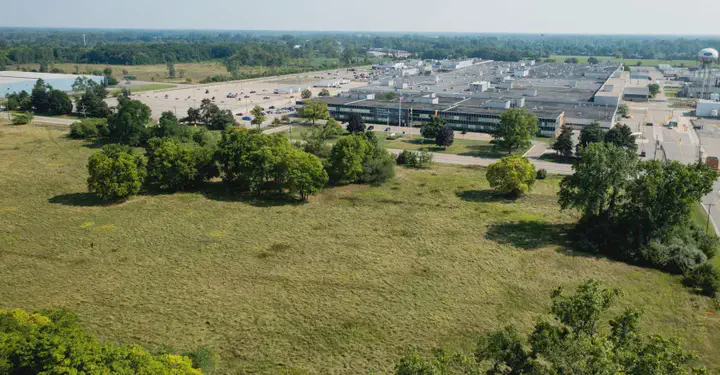Governing AI’s Footprint: A Scalable Human-AI Workflow to Extract Zoning Codes for Data Centers and Renewable Energy Sitting
 Proposed data center by UM and Los Alamos National Laboratory (image from the web)
Proposed data center by UM and Los Alamos National Laboratory (image from the web)(In Progress)
This work is in development with Zhixuan Qi, Sarah Mills.
Abstract
As generative AI systems drive demand for computational infrastructure, their societal impacts increasingly intersect with environmental strain, land use conflict, and opaque regulatory frameworks. Data centers consume vast energy and water resources, while facing fragmented, outdated, and inconsistent zoning regulations. Similarly, renewable energy facilities intended to offset these environmental costs are hindered by slow permitting processes and ambiguous land use designations. Although both are critical to supporting AI systems, the siting and permitting processes for data centers and renewables remain opaque to researchers, industries, and policy makers.
At the center of this challenge are zoning ordinances, the key legal instruments that regulate land use in every U.S. jurisdiction. These documents define permitted uses, spatial constraints, and development conditions—but they are decentralized, heterogeneous, and written in complex legal logic that jumps across sections. As a result, answering even a basic question—Where are data centers allowed? What restrictions apply to solar farms?—requires manually reviewing hundreds of lengthy PDF ordinances. Traditional rule-based extraction methods cannot keep pace with this complexity, and manual review is infeasible at scale.
To address this gap, we propose a human-AI collaboration workflow to extract structured information from zoning codes related to data centers and renewable energy facilities. Our aims are threefold:
Design and evaluate a human-AI workflow for high-validity extraction of zoning information from complex, heterogeneous legal documents.
Build and validate a multi-state zoning database across Illinois, Indiana, Michigan, Minnesota, Ohio, and Wisconsin.
Develop a publicly accessible web tool that enables users to search, filter, and trace zoning regulations back to original ordinance PDFs.
This workflow will not only create the first standardized, multi-state zoning dataset for AI-era infrastructure, but also serve as the foundation for a broader computational interface for zoning documents. In future iterations, we envision using knowledge graphs as the backbone of a unified zoning information system—where modular zoning concepts become nodes, and their logical conditions form edges. A user interested in, for example, “solar panels in New York City” could click on a node and instantly see all relevant sections, cross-references, and regulatory conditions light up. Such an interface could reveal regulatory gaps, uncover inconsistencies, support permitting decisions, and allow planners to compare the structural complexity of zoning across jurisdictions.
By transforming unstructured zoning ordinances into machine-interpretable, human-navigable knowledge systems, this project aims to make zoning more transparent, accessible, and analytically tractable. The resulting datasets and tools will support immediate planning needs in the Midwest and provide a scalable blueprint for responsible AI-era land-use governance—ensuring that infrastructure development remains sustainable, publicly accountable, and aligned with community and environmental priorities.
This project is funded by MIDAS PODS and Microsoft.
Keywords: data center; renewable energy; zoning; AI governance